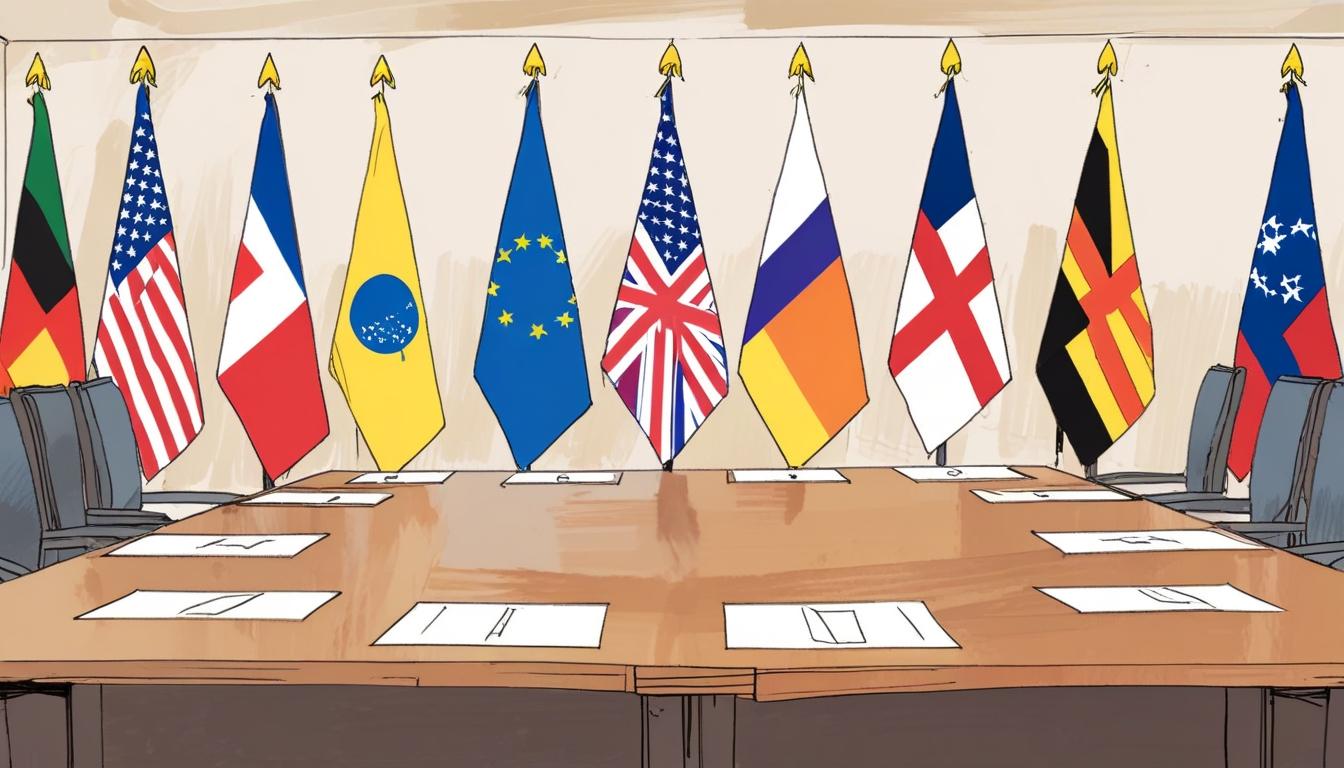Former US President Donald Trump has issued a sharp rebuke of Ukrainian President Volodymyr Zelensky following his outright rejection of a proposed peace deal crafted to end the ongoing conflict in Ukraine. The heated exchange comes amid escalating diplomatic tensions as a planned round of international talks intended to progress negotiations collapsed at the last moment.
In a series of public comments on his Truth Social platform, Mr Trump alleged that Mr Zelensky’s refusal to concede Ukrainian territory was responsible for prolonging the “killing field”. He asserted, “He can have peace or he can fight for another three years before losing the whole country.” Mr Trump further accused Mr Zelensky of losing Crimea “years ago under the auspices of President Barack Hussein Obama” and questioned why Ukraine had not fought for the territory at that time. He said that inflammatory rhetoric from the Ukrainian president was making it “so difficult to settle this war”.
The peace proposal in question was reportedly put together by Steve Witkoff, a US peace envoy, following a recent meeting with Russian President Vladimir Putin in St Petersburg. Central to the plan were a series of concessions by Ukraine, including surrendering control of Crimea—annexed by Russia in 2014—and four eastern provinces: Luhansk, Donetsk, Kherson, and Zaporizhzhia. The plan would also bar Ukraine from joining NATO, allow Russia to receive billions of pounds worth of previously frozen assets, and see Western sanctions on Russia relaxed.
However, President Zelensky has firmly rejected all proposals involving territorial concessions, particularly the recognition of Crimea as Russian territory. Speaking to the Wall Street Journal, he said, “There’s nothing to discuss – this lies outside our constitution. This is our territory, the land of the Ukrainian people. This will not happen.”
The diplomatic fallout has also seen significant disruption to planned talks scheduled to take place in London, intended to bring together officials from Ukraine, the US, the UK, France, and Germany. Hosted by UK Foreign Secretary David Lammy, the talks were set to include Mr Witkoff and US Secretary of State Marco Rubio. Yet, at the eleventh hour, both the envoy and Mr Rubio withdrew, instead sending Ukraine special envoy Keith Kellogg. Mr Witkoff was reportedly travelling to Moscow for further discussions with President Putin.
The diplomatic strain extends beyond Ukraine itself. Relations between the United States and the United Kingdom have become strained amid growing frustration in Downing Street over the American approach. A senior minister expressed blunt criticism to the Daily Mail, declaring: “The US are f***ing up everything – on Ukraine, on tariffs, on everything.” Former UK Defence Secretary Sir Ben Wallace also criticised the Trump administration’s approach, warning, “Every point on Trump’s latest ‘deal’ strengthens the Kremlin and weakens the West. Every point emboldens Iran and China.” He further cautioned that if this course continued, the United States risked becoming “isolated, friendless and broke.”
The UK government maintained publicly that “substantive” talks remained possible, with the Prime Minister’s official spokesperson affirming Britain will “never walk away from Ukraine.” Despite the tensions, efforts continued to explore avenues toward a peaceful resolution. President Zelensky, meanwhile, offered a measured statement on the social media platform X, acknowledging the intensity of the day’s developments but expressing hope for progress through multilateral cooperation: “Emotions have run high today. But it is good that five countries met to bring peace closer. Ukraine, the USA, the UK, France and Germany...We hope that it is exactly such joint work that will lead to lasting peace.”
The ongoing conflict between Russia and Ukraine has entered a critical diplomatic phase, with opposing positions on sovereignty and territorial integrity at the heart of the impasse. As efforts to broker peace encounters setbacks among key international players, the situation remains unresolved, with concerns mounting over the human cost and broader geopolitical consequences.
Source: Noah Wire Services
